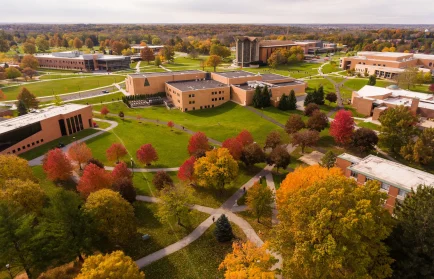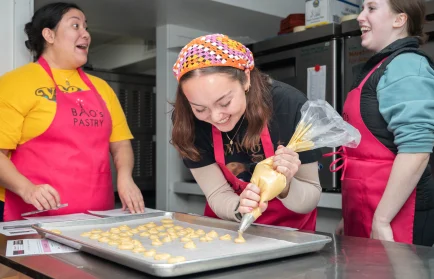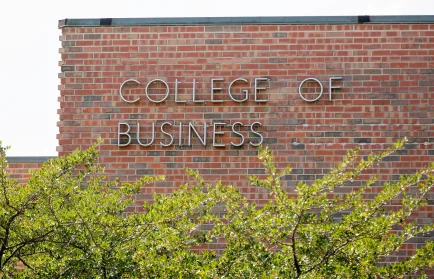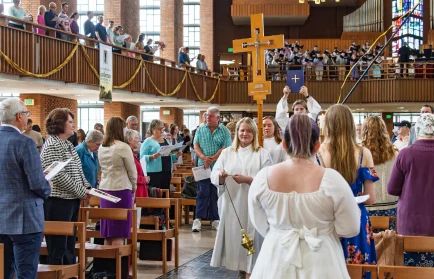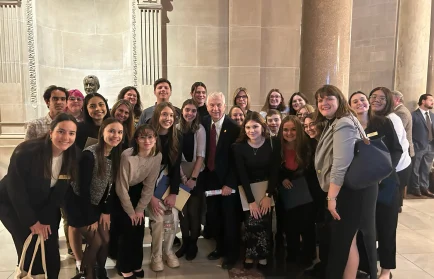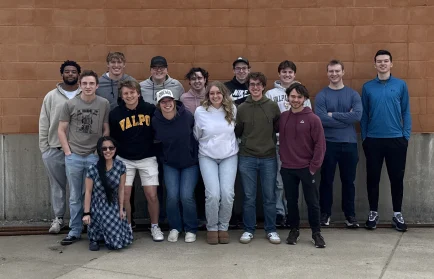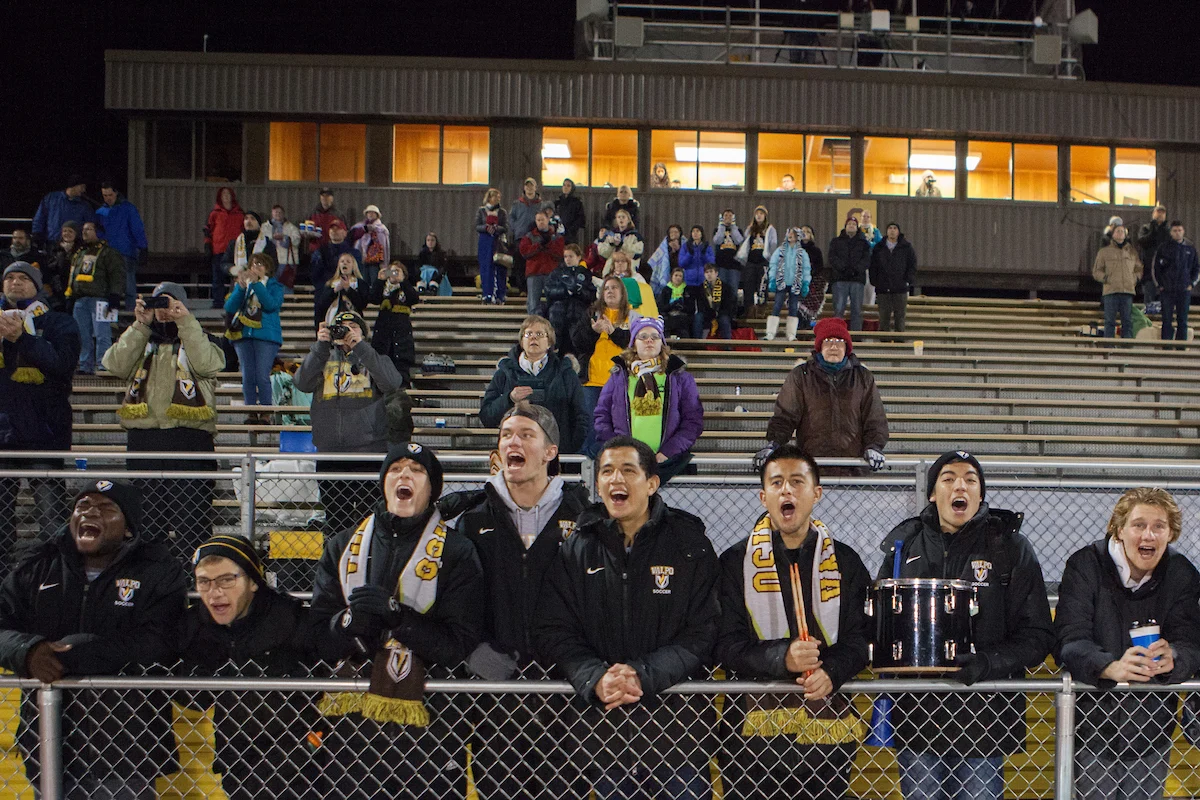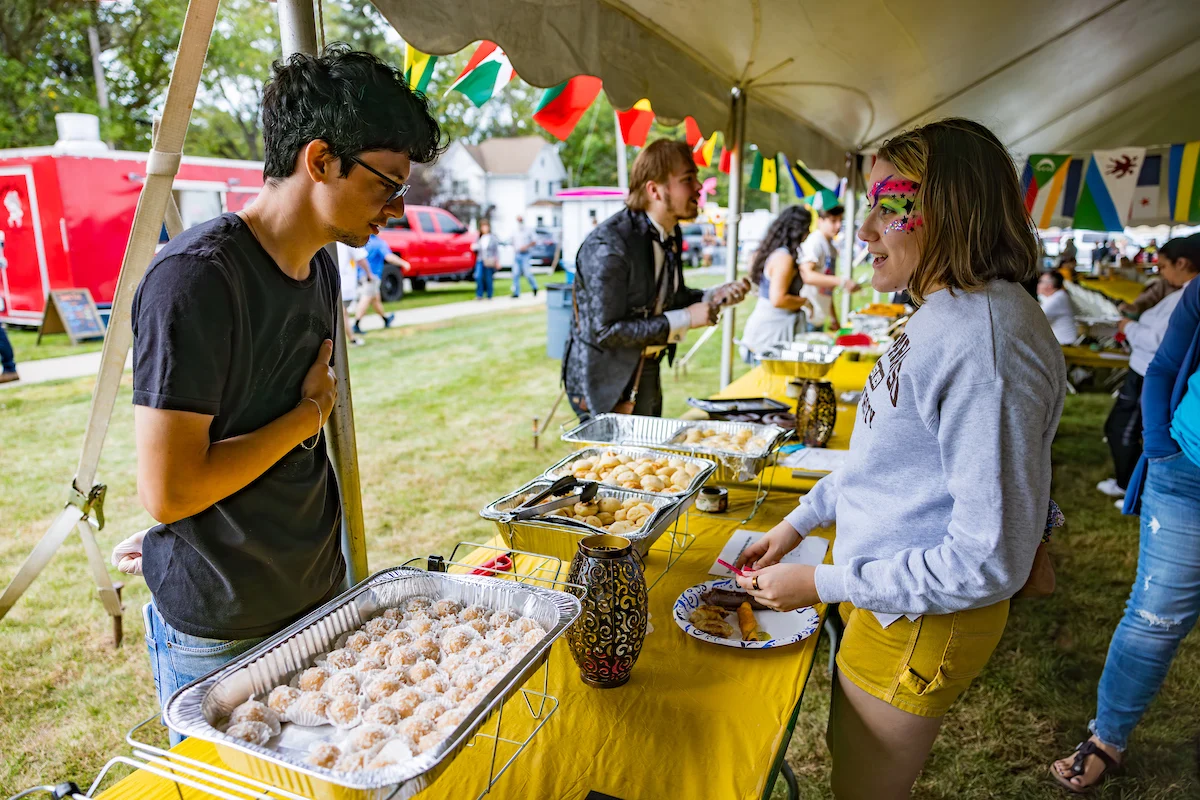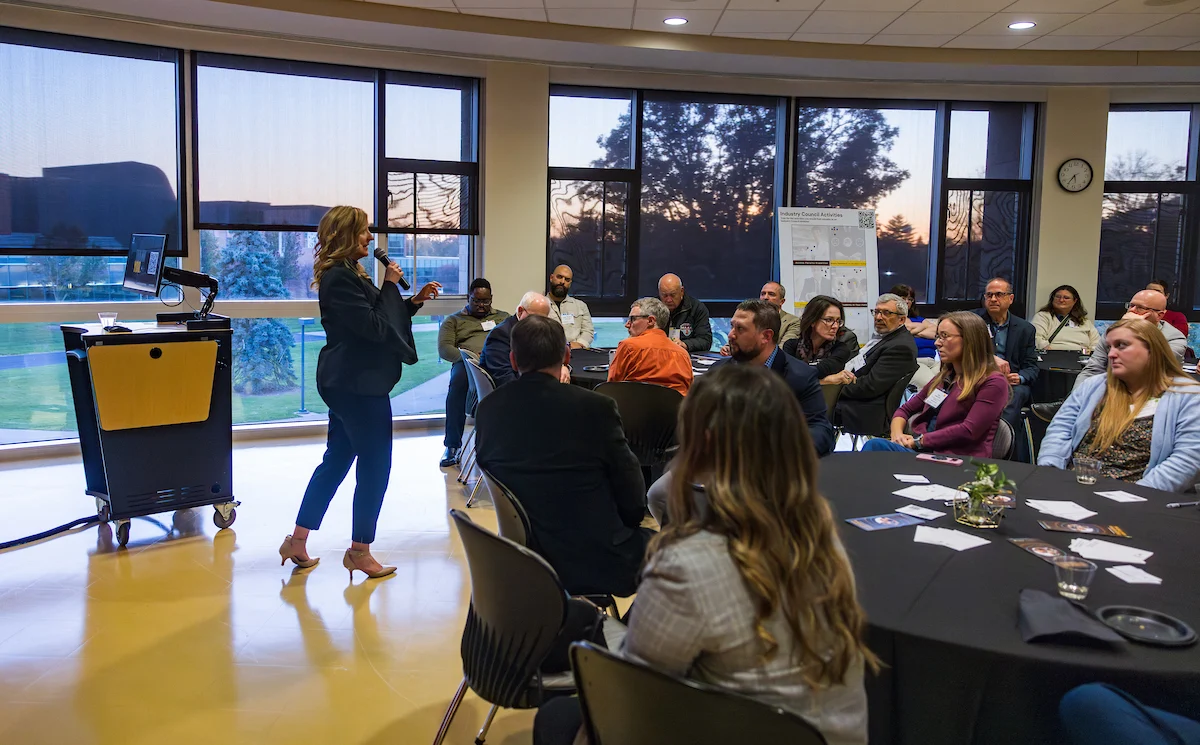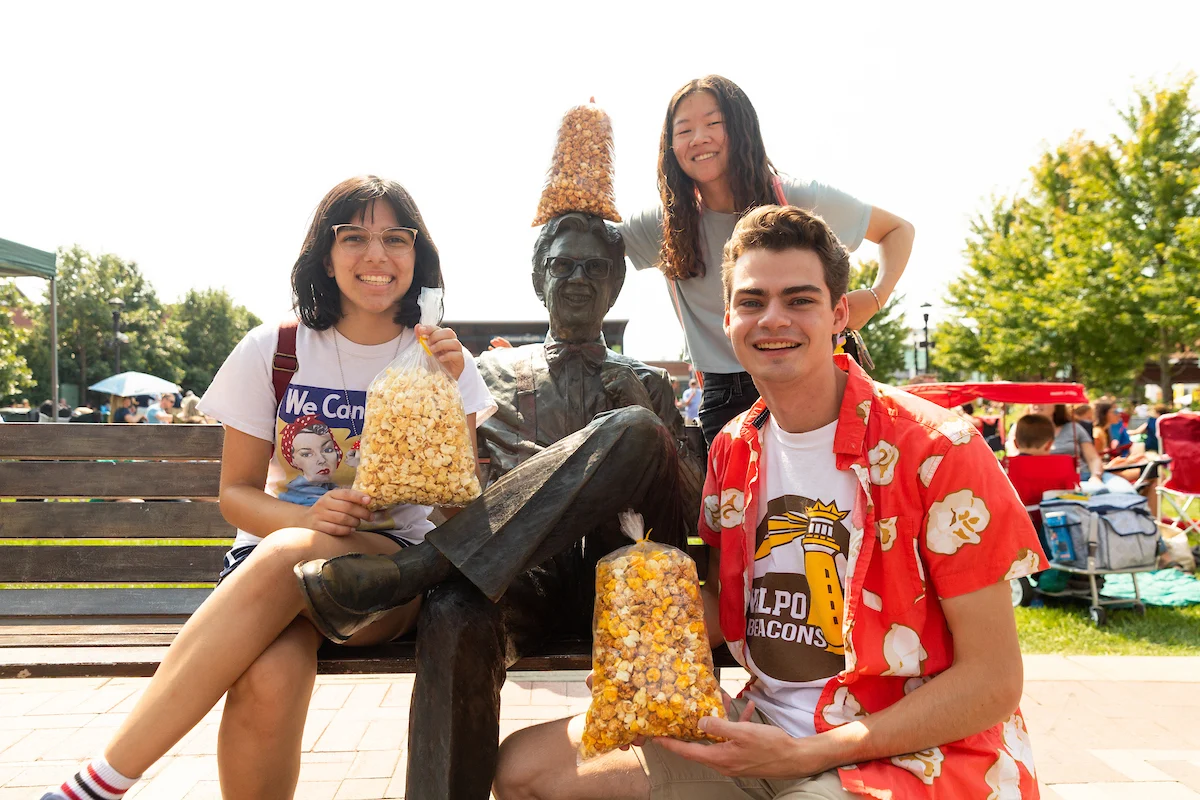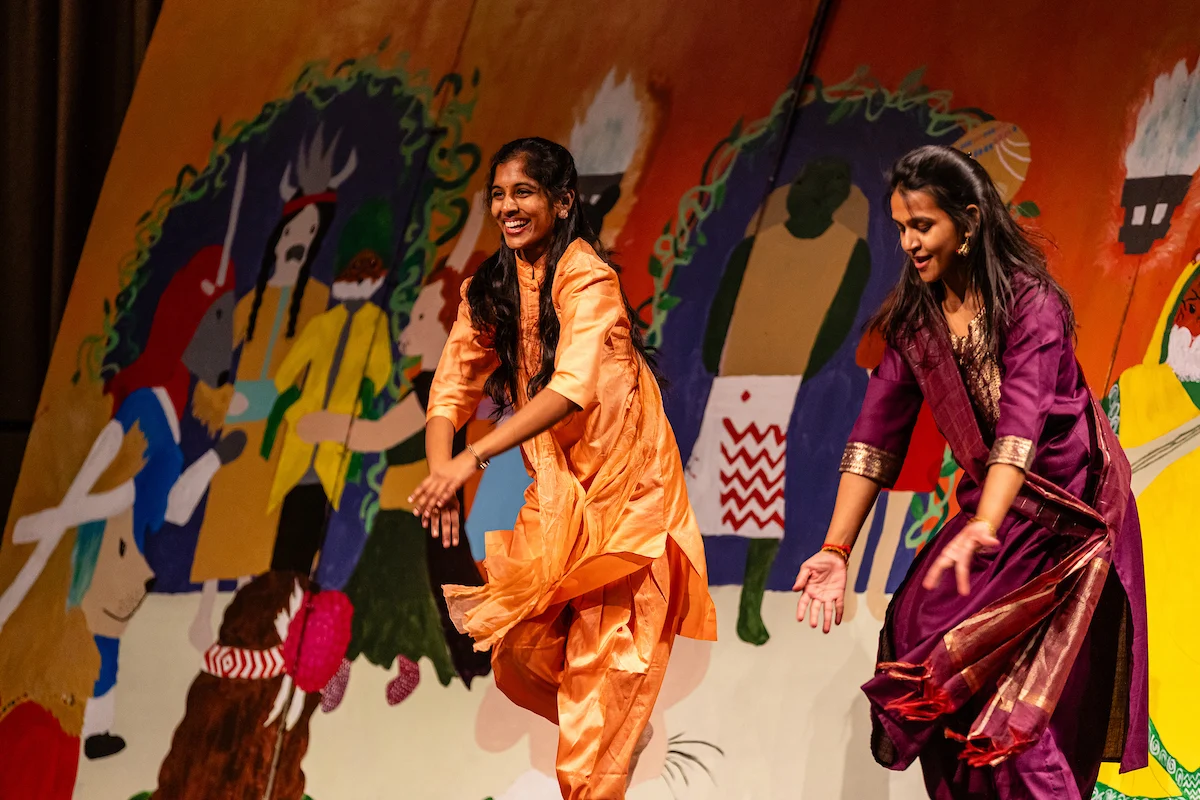U.S. Culture
American Culture and Culture Shock
Living in a foreign country is challenging, but it is also a great learning experience. By learning to understand and navigate the culture of another country, we become more open-minded and accepting individuals. While you are here in the United States, consider cross-cultural learning an important aspect of your education.
If you come from a cultural background that differs greatly from that of the United States, the behavior of Americans may be very strange, annoying, or even upsetting to you at first. Following is a guide to American cultural traits and values, which will help you to understand the meanings and intentions of the things Americans say and do.
Americans have a very high regard for those who are self-sufficient. It is an important aspect of American culture. However, you will also find that Americans are very willing to help someone in need — they will just expect you to ask for help before they do so. It will rarely be assumed that you need help if you don’t ask for it.
Americans tend to dislike the idea of wasting time. For many Americans, each part of the day has a purpose and free time is often lacking. They can also seem quite obsessed with being on time (although many Americans are often late). Being late for an appointment with an American can be taken as a personal offense because it indicates disrespect.
Independence is a very strong cultural value in the U.S. Young people look forward to moving out of their parents’ home so they can be independent from them, and parents generally want them to do so. Parents believe teaching their child independence is an important part of their upbringing and is a positive thing.
America’s history of racism and segregation has largely been replaced with the idea of “equal opportunity.” Most Americans feel that each person should have the same opportunities regardless of race, gender, or religion. The notion of equality extends to Americans’ general disregard for social or economic status. Being wealthy or having connections to powerful people does not automatically command respect from Americans, and it will generally not entitle a person to special treatment or privileges.
Newcomers to the United States are often shocked by the informality of Americans. People dress very casually, call superiors by their first names, and eat just about anywhere. This is related to Americans’ idea of equality. If we are all social equals, then we can be informal in just about any situation.
Americans often say exactly what they think, even if the information is unpleasant or bad news. In some cultures this is considered rude. However, Americans believe acting any other way would be dishonest or even disrespectful. Americans often find it confusing when visitors from other cultures do not say exactly what they want, think, or need.
Americans covet their own personal space and generally do not like that space to be invaded. They find it uncomfortable when others stand too close and will unconsciously move away. In addition, Americans have a strong sense of privacy and believe everyone is entitled to that. They do not like to be asked their age, weight, or salary. Conversations about personal family matters, political opinions, or religion are reserved for later stages of friendship.
Everywhere you go in the world, social customs are different. What is polite in one country can be considered rude in another. Here is a guide to American social customs. You will probably find a lot of differences and similarities with your own culture.
Shake hands firmly, and shake hands with people of the opposite gender. To Americans, how you shake hands is a measure of your character.
Always look people in the eye when shaking hands or conversing. Lack of eye contact is interpreted as a lack of honesty in the U.S.
Make sure that you are free of any body odor. Many people are unaware of their body odor. This could lead Americans to believe that you do not take care of your personal hygiene. To remedy the issue, always apply deodorant after you take a shower and at the start of each day.
Keep your space. Many Americans do not like it when you enter their personal space. When meeting people, you should always keep a good amount of space between you and the person you are meeting.
Hold the door open for people walking behind you.
Wait in line patiently.
Treat people in service positions (servers, drivers, etc) as equals.
Give tips in restaurants, hotels, hair salons, taxi cabs, and to anyone who helps you carry your luggage.
Don’t eat fast — savor the food to show you enjoy it and take time to make conversation.
Put your napkin in your lap.
When you need assistance in a restaurant, raise your hand and say, “Excuse me, please!” Other methods used in other countries may not be understood or liked in the U.S.
Learn which food are “finger-foods” and which require silverware.
When eating out with friends, each person usually pays for themselves unless someone clearly states they will pay. Always assume you will pay for yourself.
When you visit a non-fast food restaurant, it is customary to leave at least a 15 percent tip as a gratitude for the person who is or has been serving.
Follow the traffic rules and mind the red lights.
Allow pedestrians to have the right of way.
Give a little wave if someone lets you merge.
If you are driving slower than most people, use the right lane.
Americans spend their lives moving frequently to new cities, new jobs, and new activities. For this reason, Americans tend to be very friendly — they will start conversations with fellow passengers on the bus, invite a new acquaintance to lunch or a birthday party, or smile and say hello to strangers they pass in the street. Americans find it easy to make casual friends. This habit has helped them adapt to the many changes that occur during their lifetimes.
However, this also means that Americans don’t have a lot of lifelong friends. Children don’t keep the same classmates throughout their school years. Neighbors and family members move away. There are fewer opportunities to form deep friendships. Americans treasure the close friends they do make, but it can be difficult for new acquaintances to move into this level of friendship.
This aspect of American culture can be confusing and frustrating for visitors from cultures that value a very tight friendship network. Actions that Americans may consider to be causal friendliness can be interpreted as a sign of deeper friendship by others.
Culture Shock
The Adjustment Process in a New Culture
Understanding the cultural adjustment process can help you cope with the often intense feelings that you may experience as you begin your life in the U.S. Each stage in the process is characterized by “symptoms” or outward signs typifying certain kinds of behavior.
- “Honeymoon” period: Initially, many people are fascinated and excited by everything new. The visitor is elated to be in a new culture.
- “Culture Shock:” The individual is immersed in new problems: housing, transportation, shopping, and language. Mental fatigue results from continuous straining to comprehend the new language.
- Initial Adjustment: Everyday activities such as housing and shopping are no longer major problems. Although the visitor may not yet be fluent in the language spoken, basic ideas and feelings in the second language can be expressed.
- Mental Isolation: Individuals have been away from their family and friends for a long period of time and may feel lonely. Many still feel they cannot express themselves as well as they can in their native language. Frustration and sometimes a loss of self-confidence result.
- Acceptance and Integration: A routine (e.g., work, business, or school) has been established. The visitor has accepted the habits, customs, foods, and characteristics of the people in the new culture. The visitor feels comfortable with friends, associates, and the language of the country.
Note: This cycle may repeat itself throughout your stay in a new culture, and these feelings are normal. Note also that upon returning home, you may experience some of these same feelings as you did when you first arrived in the new culture. This is called “reverse culture shock.”
Go out: Don’t sit in your apartment or the library every day. Find some campus activities that sound interesting to you. By getting out and into social settings, you will begin to become more comfortable with new customs.
Get exercise: Exercise has been shown to reduce stress and fight depression. Take a walk downtown or join an intramural sports team. Find some fellow students who want to get active, and schedule a regular activity.
Make friends: Make an effort to become friends with both Americans and other international students. The international students will be able to relate to your feelings and may be able to offer advice and support. American friends can answer general questions you have about life in the U.S. By making new friends, you will reduce feelings of loneliness and will begin to form bonds with your new surroundings.
Learn about the new culture: Resist the urge to judge behaviors or practices that are different from your own as being “bad” or “unintelligent.” Instead, try to learn the reason behind the behavior. While you may not agree with the practice, you will have a better understanding of how to respond when faced with it.
Seek assistance: If you find that you cannot seem to adjust to the new culture, make an appointment to speak with one of the staff in International Programs. If you find that you are very depressed, make an appointment with the Counseling Center. In both cases, your meeting will be completely confidential.
Be patient: Most people require several weeks or more to feel comfortable in a new culture. Give yourself time to adjust. Focus on the positive experiences, and try to view negative experiences as learning opportunities.
Experience University Life
Student Life
There is no shortage of fun here at Valpo. Experience Chicago, our sporting events like Men’s Basketball, or hike the Indiana Dunes.
Make sure to stay in touch with International Programs and the Valparaiso International Student Association. Both offer many on-campus events that provide a great chance to get involved and meet new people.
Local News and Entertainment
Make sure to check out these fun events and places around Valparaiso. Take your friends!
Local Newspapers
Valparaiso’s daily newspaper, also available online at post-trib.com. Click on “Entertainment.”
Another local publication, which can also be found online at nwitimes.com.
Places of Entertainment
49er Drive-In Movie Theater is one of Valparaiso’s most awesome attractions. Take some friends and relax in your own car while watching a double feature! 675 N. Calumet Ave., Valparaiso, IN 46383.
For movie times, call: 219.462.6122.
At Zao Island, you and your friends can enjoy a game of mini golf, go-karts, the game room, and the batting cages. They also have a restaurant with great pizza and more. 1050 Horse Prairie Ave., Valparaiso, IN 46385.
Call: 219.462.1194 for more information.
If you like to bowl, Inman’s Fun and Party Center is the place to do it! They also have an arcade and outside attractions. 3201 East Evans Ave., Valparaiso, IN 46383.
Call 219.462.1300 for more information.
Event Highlights
International Food Bazaar
The International Food Bazaar is held on the Saturday of Homecoming Weekend (late September or early October) from approximately 11 a.m. to 1 p.m. on the lawn between the Fitness Center and the Athletics Recreation Center (ARC).
International students representing many different countries will prepare traditional foods to showcase their culture.
Tickets will be available for purchase at the Bazaar (cash only). One ticket-$1; six tickets-$5.
Enriching the Community
Valparaiso Creative Council
The mission statement of the Valpo Creative Council states that it “enriches the community by promoting, developing, and advocating for and with local arts efforts, artists, and organizations by providing educational, programmatic, and marketing support.”
Measurement Conversions, Holidays, and Religion
Adjusting to life in the U.S. can involve learning new systems and customs, including measurement conversions (like miles and Fahrenheit), national holidays, and cultural or religious norms. Understanding these everyday differences can help you feel more comfortable and connected.
Valparaiso University offers resources and a welcoming community to support you as you navigate these aspects of American life.
When you arrive in the United States, and specifically when you arrive in Valparaiso, you will want to exchange your country’s currency to U.S. dollars or withdraw U.S. dollars from your international bank account. Use the website below to calculate the currency conversions.
You will notice that the United States does not use degrees Celsius to indicate the temperature. Here, we use degrees Fahrenheit. Listed below is a website that will help you convert the two.
Or, if you think you are able to calculate this yourself, use this formula:
°C x 9/5 + 32 = °F
United States Holidays
As a nation, the United States celebrates a number of official holidays. The following holidays are “Federal Holidays” on which many places of business — such as banks and stores — are closed, including university offices.
NOTE: Valparaiso University remains open and classes meet on Labor Day.
Last Monday in May: Memorial Day
July 4: Independence Day
September 5: Labor Day
November 11: Veteran’s Day
4th Thursday in November: Thanksgiving Day
December 25: Christmas Day
January 1: New Year’s Day
January 16: Martin Luther King Jr. Day
March/April: Easter (click for more information)
Most places in the United States observe “Daylight Savings Time”. In the spring, all clocks are moved forward one hour, and in the fall they are moved back again. The historical purpose of this practice was to give more daylight time to agriculture workers in the summer. Nowadays, Americans find that they just enjoy more daylight hours for summer recreational activities!
Each year Daylight Saving Time starts on the second Sunday in March and ends on the first Sunday in November.
Religion
Valparaiso and the surrounding area have many organizations for the practice of most major world religions. Contact the organization directly for worship schedules. If the religion you practice is not listed, you may try finding a place of worship in Chicago.
Chapel of the Resurrection (Valparaiso University)
Immanuel Lutheran Church
1700 Monticello Dr.
First United Methodist
103 N. Franklin St.
Calvary Church
1325 Evans Ave.
Valley Baptist Church
255 Rigg Rd
Liberty Bible Church
824 N Calumet Ave., Chesterton
Good Shepherd Presbyterian
1901 Evans Ave.
St. Teresa of Avila
1411 LaPorte Ave.
St. Paul’s Catholic Church
1855 Harrison Blvd.
Temple Israel of Porter County
1405 Evans Ave.
Hope of Israel Congregation
504 Lincolnway
Northwest Indiana Islamic Center
9803 Colorado St., Merrillville, IN 46411
Islamic Center of Michigan City
5000 East Brown Rd., Michigan City, IN 46360
St. Iakovos Greek Orthodox Church
36W 700N, Valparaiso, IN 46385
St. Elijah Serbian Orthodox Cathedral
8700 Taft St., Merrillville, IN 46410
Valparaiso Events
Popcorn Festival
On the second Saturday in September, located in downtown Valparaiso, the Popcorn Festival offers fun activities, good food, live music, and many other exciting things. Check the Valparaiso Events website for Popcorn Festival details and other scheduled events in the area.
Celebrating every communtiy
World Cultural Festival
Bring your entire family and explore different cultures. Admission is free and there will be food available for purchase. Come for a family-friendly day filled with food, shopping, and entertainment that will celebrate the cultural diversity of Northwest Indiana and the ever-growing interconnectedness of our world.
There will be authentic cultural music and dancing, international hand-made arts and crafts, educational and fun children’s activities, and several types of international dishes.
